Capacity building of staff on project proposal writing and evidence-based documentation using human most significance change stories and photo-video editing.
- Introduction
This term of reference serves as a guideline for undertaking staff capacity building in project proposal writing and evidence-based documentation using human most significance change stories and photo-video editing. The TOR provide details including the background of the organization, the purpose, scope, methodology, expected deliverables, time frame, qualification & experience, eligibility criteria and application mode.
2. Background
Habitat for Humanity Uganda is affiliated with Habitat for Humanity International that was established in 1976 and is a leading housing organization impacting nearly 40 million people in 70 countries across the world. Since our inception in Uganda in 1982, Habitat for Humanity has built and improved over 40,000 houses through four strategic program interventions: – Vulnerable Group housing, Housing Microfinance, Market systems and Urbanization thus transforming the lives of over 240,000 vulnerable individuals in Uganda.
Habitat for Humanity Uganda is currently in the process of reviewing its strategy; and capacity building will be key to achieving this milestones. As part of the process, the organization intend to hire the service of an external experts to support the country team/staff in writing and securing competitive grants; and evidence-based documentations using most significance change stories and photo-video editing using simple and user friendly applications.
- The purpose of the assignment
To strengthen staff capacity in writing and securing competitive grants and evidence based documentation.
- Expected results
The training is expected to improve staff capacity in;
- Project proposal writing knowledge and skills
- Writing and securing competitive grants
- Photo-video editing evidence-based reporting and decision making
- Photography and videography
- Documentation of most significance change stories
- Planning and decision making in the implementation of project activities.
5. Scope of the assignment
The consultant/ firm will be expected to develop the training materials to cover the knowledge and skills areas including project/ grant proposal writing, evidence-based documentation using human most significance change stories and photo-video editing. The training will take a total of 10 days including actual training and reporting.
- Methodology
The proposed training areas require absolutely practical and participatory methods with techniques suitable for adult learning. Habitat for Humanity will be keen on considering training methods and techniques which are practical, responsive to the needs/ applicable to the context of organization needs and are participatory.
- Deliverables
The consultant/firm will be expected to deliver the following outputs;
- Inception report detailing summary of technical and financial proposals incorporating inputs of both parties. The report will be adopted as a working documents and once it`s approved, the consultant will start the assignment.
- Training plan with outline of contents to be covered and proposed participatory methods of delivery aligned to the contents.
- Training report of not more than 15 pages excluding preliminary pages. The consultant will adopt the reporting format stipulated in the ToRs. These include title page, list of abbreviations/ acronyms, executive summary, introduction, Purpose, targets learners, topics covered, methodology, materials used, agreed actions, challenges, learning, recommendations.
- Soft copy of materials, tools and frameworks used for the training
- Training materials / curriculum used for all the training themes.
- Timeframe
The training is expected to take 10 days. This will include 8 days of actual training and two days for reporting. It will commence in the second week of May 2022.
- Eligibility criteria
The selection of consultant/firm for this assignment will be based on Habitat for Humanity Uganda eligibility criteria below: –
| Eligibility criteria | Score |
| Quality of technical proposal and proposed training curriculum | 40% |
| Methodology, mode of delivery and training plan | 30% |
| Financial proposal | 10% |
| Qualifications, related experience and skills in the learning subjects | 20% |
10.Qualifications and experience
- Master degree in Business Administration or Mass communication, video production, human psychology, social sciences, Adult and community education and any other related courses from a recognized institution
- At least 10 years’ experience and expertise in facilitating trainings for senior staff at national and international organizations in the areas of project proposal writing, evidence-based documentation using most significance change stories and photo-video editing using an appropriate application.
- Knowledge and experience in policy development, institutional development, and evidence with a certificate in this respect is an added advantage.
- Extensive work experience and proven record in Capacity development, advocacy, Organizational/institutional developments, and strategic management.
- Strong analytical and excellent writing and reporting skills.
- Familiarity with NGO context.
- Familiarity with the donor funding landscape in Uganda.
- Demonstrated ability to design capacity building strategies based on clear needs identification and understanding of the operating context, and experience of working with Governments Institutions & donor community.
- Ability to work efficiently and deliver on committed outputs under the assignment within agreed timelines and deadlines.
- Commitment to upholding the organization values and principles of Habitat for Humanity is key.
11. Mode of application
Interested consultants/firm should submit both Technical and Financial Proposals with the CVs of the resource persons and 2 samples of training reports of a similar assignment to procurement@hfhuganda.org not later than 30th March 2022.
“Safeguarding: HFHU requires that all employees/stakeholders take seriously their ethical responsibilities to safeguarding our intended beneficiaries, their communities, and all those with whom we work. Managers at all levels have responsibilities to support and develop systems that create and maintain an environment that prevents harassment, sexual exploitation and abuse, safeguards the rights of beneficiaries and community members (especially children), and promotes the implementation of Habitat for Humanity’s code of conduct.”
